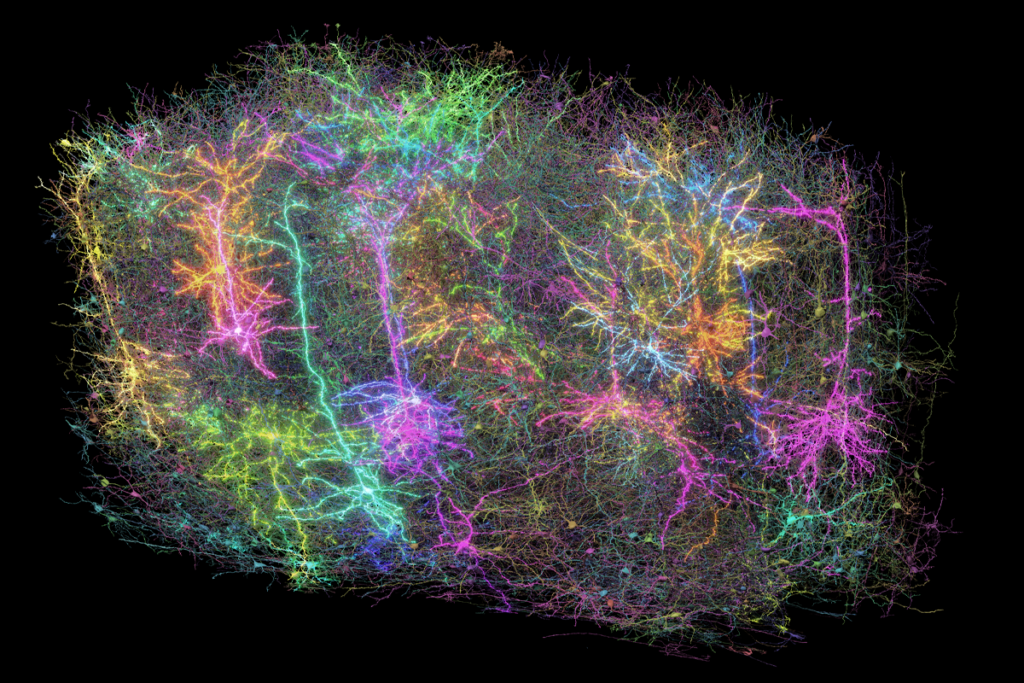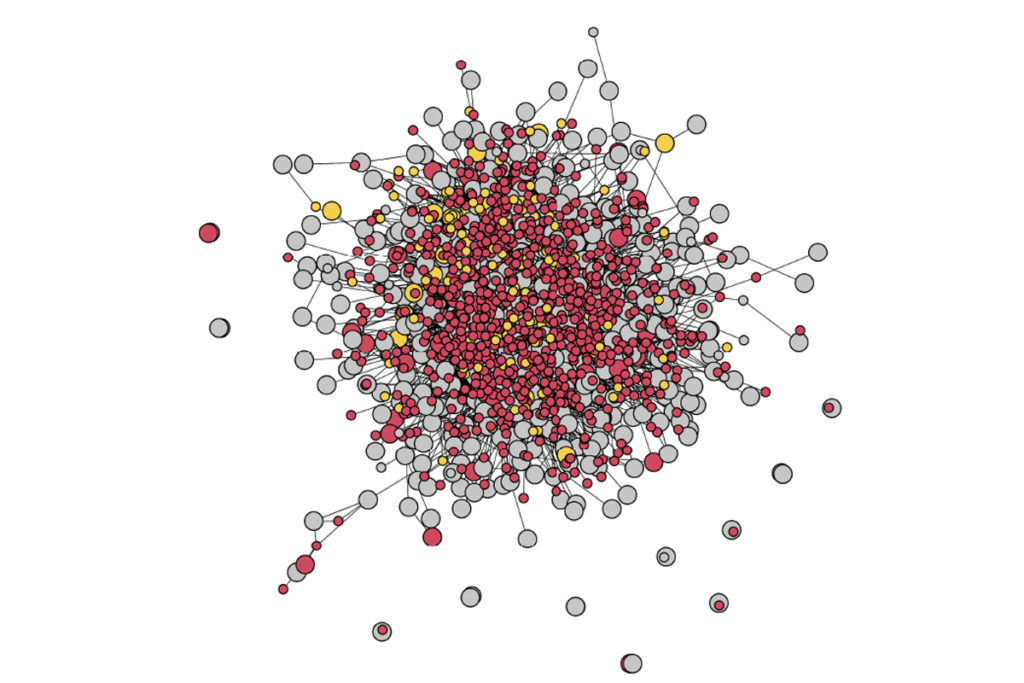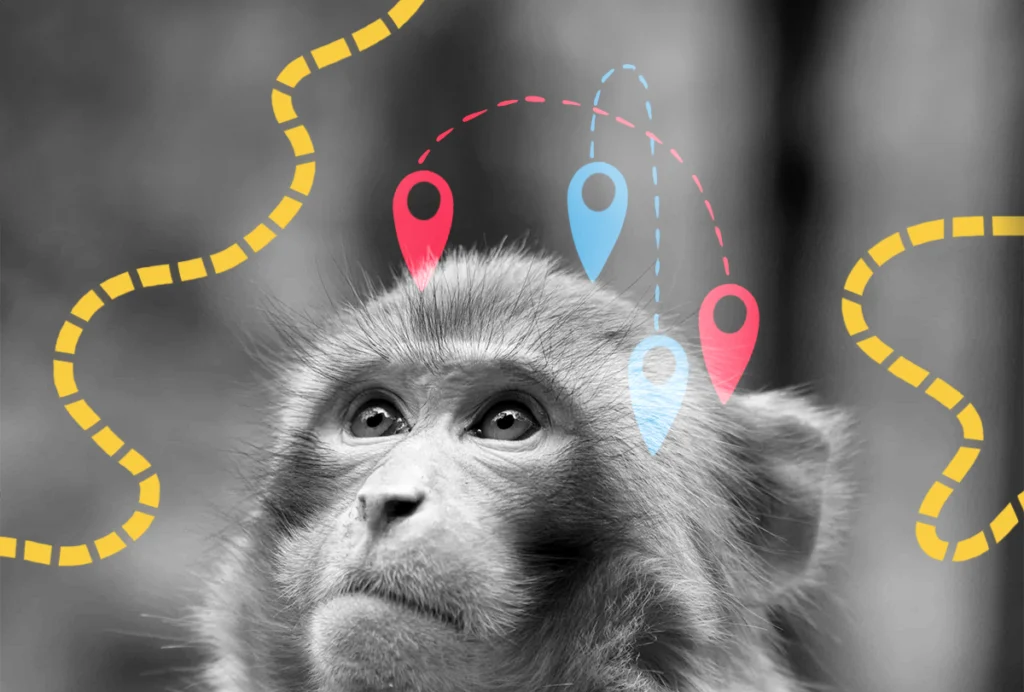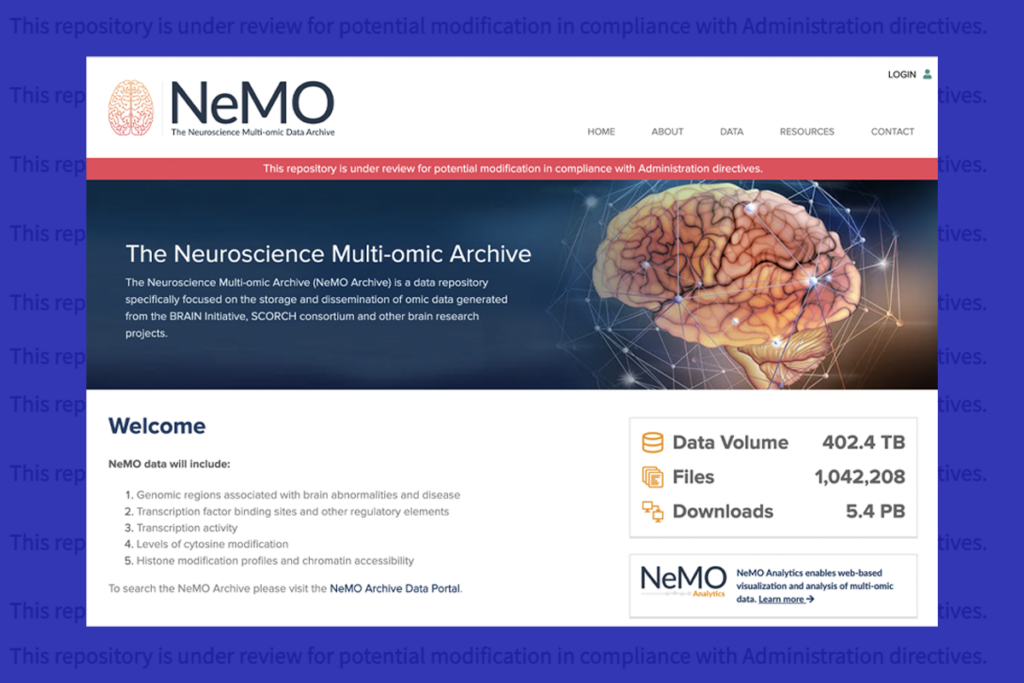Katie Moisse is contributing editor and former news editor at The Transmitter. She teaches science communication at McMaster University in Hamilton, Ontario, Canada. She has a Ph.D. in neuropathology from the University of Western Ontario and an M.S. in journalism from Columbia University.

Katie Moisse
Contributing editor
The Transmitter
From this contributor
Inhibitory cells work in concert to orchestrate neuronal activity in mouse brain
A cubic millimeter of brain tissue, meticulously sectioned, stained and scrutinized over the past seven years, reveals in stunning detail the role of inhibitory interneurons in brain structure and function.

Inhibitory cells work in concert to orchestrate neuronal activity in mouse brain
Sequencing study spotlights tight web of genes tied to autism
The findings, shared in a preprint, help to illuminate how a large and heterogeneous group of genes could be involved in autism.

Sequencing study spotlights tight web of genes tied to autism
Static pay, shrinking prospects fuel neuroscience postdoc decline
Postdoctoral researchers sponsored by the National Institutes of Health now toil longer than ever before, for less money. They are responding accordingly.

Static pay, shrinking prospects fuel neuroscience postdoc decline
Monkeys build mental maps to navigate new tasks
Cognitive maps, also known as world models, allow animals to imagine novel scenarios based on past experiences.

Monkeys build mental maps to navigate new tasks
Pinning down ‘profound autism’ for reliable research: Q&A with Matthew Siegel
A clear and actionable definition for the term could enhance research and improve care, Matthew Siegel says.

Pinning down ‘profound autism’ for reliable research: Q&A with Matthew Siegel
Explore more from The Transmitter
As federal funders desert mentorship programs for marginalized students, trainee-led initiatives fill the gap
Grassroots organizations, led by graduate students and postdoctoral researchers, are stepping up to provide neuroscience career training and guidance for students from marginalized backgrounds—and they need your support.

As federal funders desert mentorship programs for marginalized students, trainee-led initiatives fill the gap
Grassroots organizations, led by graduate students and postdoctoral researchers, are stepping up to provide neuroscience career training and guidance for students from marginalized backgrounds—and they need your support.
Split gene therapy delivers promise in mice modeling Dravet syndrome
The new approach overcomes viral packaging limitations by delivering SCN1A piecemeal and stitching it together in target cells.

Split gene therapy delivers promise in mice modeling Dravet syndrome
The new approach overcomes viral packaging limitations by delivering SCN1A piecemeal and stitching it together in target cells.
U.S. human data repositories ‘under review’ for gender identity descriptors
Researchers associated with the repositories received an email from the U.S. National Institutes of Health in March noting that they must comply with a 20 January executive order from President Trump that recognizes only two sexes: male and female.

U.S. human data repositories ‘under review’ for gender identity descriptors
Researchers associated with the repositories received an email from the U.S. National Institutes of Health in March noting that they must comply with a 20 January executive order from President Trump that recognizes only two sexes: male and female.